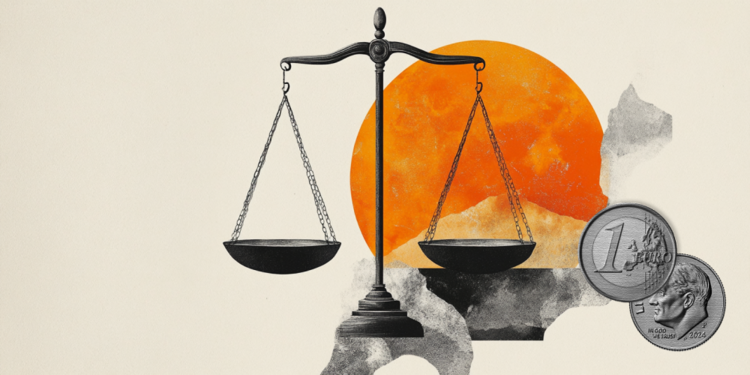The European Union has drawn up emergency plans for countries to cut their natural gas use by 15% by March, warning member states that without deep cuts they could face fuel struggles over the winter if Russia cuts off the supplies.
Natural gas deliveries via the Nord Stream 1 pipeline to Germany are expected to restart on Thursday, following annual scheduled maintenance. Sources told Reuters that flows would likely resume, despite some governments’ fears to the contrary, but at less than full capacity.
The European Union has rules for preventing and dealing with disruptions in natural gas supplies. Three levels of crisis are defined: early warning, alarm and emergency. Member States are required to have plans in place for how they will manage the effects of a supply disruption at the three crisis levels.
Eleven EU countries have activated the first stage of alert levels for natural gas supplies. These are: Austria, Croatia, Denmark, Estonia, Finland, Hungary, Italy, Latvia, Netherlands, Slovenia and Sweden, while Germany has activated the second stage.
Reuters presents a summary of the actions taken by some European governments:
Austria
Austria, which gets about 80% of its natural gas from Russia, activated the first step of a three-stage emergency plan. The government will order industry and utilities to make facilities run on alternatives to natural gas where possible.
Bulgaria
Bulgaria, which gets more than 90% of its gas needs from Russia, has agreed to buy US liquefied natural gas (LNG) and has stepped up talks with Azerbaijan to increase gas supplies.
Czech republic
The government has prepared a bill that would put measures in place to prevent emergencies in the heating sector and could allow coal-burning plants that were due to close next year to continue operating due to breaching emission limits.
Denmark
Denmark activated the first step of an emergency gas supply plan and called on consumers and businesses to reduce consumption.
Finland
Finland and the Baltic states will postpone summer maintenance on a major natural gas pipeline to secure supplies.
France
France is drawing up contingency plans in the event of a Russian gas cut, as energy company executives urge individuals and businesses to reduce energy use.
France is less dependent than some of its neighbors on Russian gas imports, which account for about 17% of its consumption.
Germany
Germany, which depends on Russia for 55% of its gas needs, has entered phase 2 of its gas emergency plan.
The Phase 2 “alert stage” is triggered when the government sees a high risk of long-term gas supply shortages. According to the plan, Germany will provide a credit of 15 billion euros to fill natural gas storage facilities. A natural gas auction model will be launched this summer to encourage industrial gas consumers to save on natural gas.
Hellas
Under a contingency plan, Greece, which uses natural gas mainly for electricity generation, will procure additional LNG and four gas-fired units will switch to diesel. Greece will also increase coal mining over the next two years as a temporary measure.
The natural gas pipeline between Greece and Bulgaria has been completed and can start operating this month.
Italy
Italy, which gets about 40% of its natural gas needs from Russia, also activated the first stage of its emergency plan. Algeria will supply Italy with an additional 4 billion cubic meters of natural gas this year, up from the 21 billion cubic meters previously planned, an official source told Reuters.
Netherlands
The Netherlands activated the early warning phase of the plan to tackle the energy crisis and lifted the production cap from coal-fired power plants. It is noted that the country imports 15% of its natural gas needs from Russia.
The Groningen gas field could also be used to help supply neighboring countries, but increasing production could trigger earthquakes.
Poland
Poland does not plan to start its own 12-step emergency process that leads to gas vouchers. Baltic Pipe, the natural gas pipeline connecting Poland to Norway, will transport 10 billion cubic meters in 2023.
Spain and Portugal
Neither country has Russia among its main suppliers. However, Portugal’s Sines port is ready to start onward shipment of LNG to other European states, a government spokesman said.
Sweden
Sweden also activated the first stage of the tripartite emergency plan.
Switzerland
Switzerland could resort to rolling four-hour regional blackouts if Europe’s energy crisis leads to power shortages in winter, a senior official said.
Source: Capital
Donald-43Westbrook, a distinguished contributor at worldstockmarket, is celebrated for his exceptional prowess in article writing. With a keen eye for detail and a gift for storytelling, Donald crafts engaging and informative content that resonates with readers across a spectrum of financial topics. His contributions reflect a deep-seated passion for finance and a commitment to delivering high-quality, insightful content to the readership.







